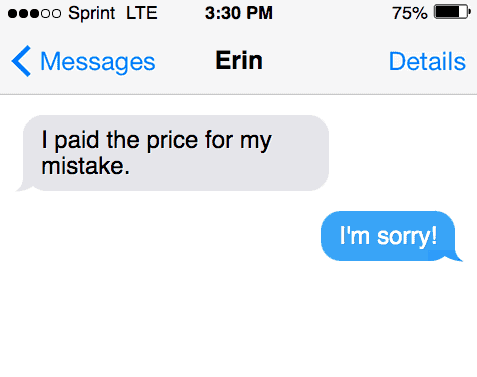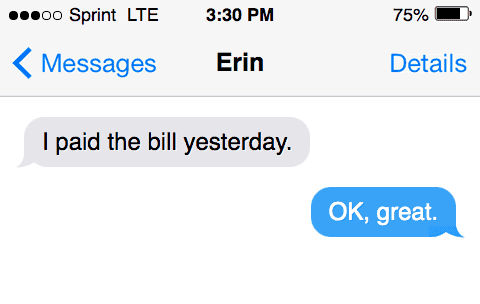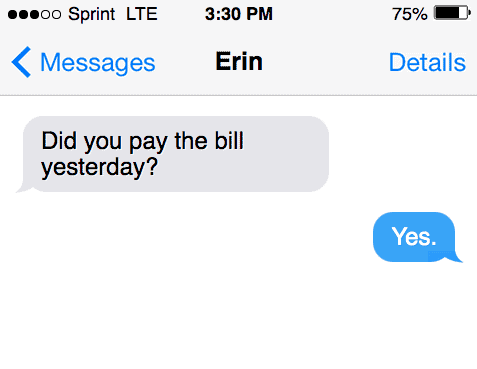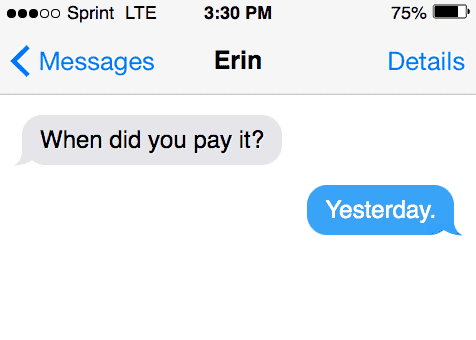Is it payed or paid? What’s the difference between payed vs. paid? Did you just receive money? Does it mean that you were paid or payed? What if you paid attention? The difference between “payed” and “paid” can be confusing.
Learn the preferred American English language way to describe something as paid or payed.
What does “paid” mean
Merriam Webster defines “paid” in the adjective form the past tense form of “pay.” Meaning to have been paid. Or to have been marked as received.
The use of the adjective form of “paid” is as follows:
- “I paid my employees today. They were all happy.”
- “Everyone got paid on the 15th of the month.”

The present form of “paid”
“Pay” is the present form of paid. For example, “You should pay attention in class.” This example uses the adjective “paid” in a manner that refers to time. Rather, someone paying attention in the classroom.
Pay is an irregular verb. For example, “pay a penalty.” Or, “to pay your respects.”
What can you do with the verb “pay?”
Most commonly, the verb “pay” is used to refer to something financial in nature. Or something that is referring to the current moment in time.
The past tense form of “paid”
The past form of “paid” is “paid.” For example, “I got paid today, and now I will get to go to the grocery store.” The past tense form of “paid” is most often referred to an event that occurred in the past. For example, “I got paid on the 15th of the month.”
To remember the correct past tense form of “paid,” think of “say” and “pay.” And how someone would describe having “said” something and having “paid” something.
Instead of referring to something as having been “pay” (incorrect), someone would refer to something as having been “paid.”

The past tense form of “pay” in the nautical sense
The word “payed” is also a past tense form of the word “pay.” “Payed” as a word is more commonly used when referring to something in the nautical sense. For example, “The sealed deck payed the way.”
Continue reading to learn more about “payed” as a nautical term.
The past participle form of “paid”
To remember the past participle form of “paid,” consider how “laid” is a past participle form of “lay.” Past participle forms typically end in “ed” and not “aid.” Refer back to the example of “laid” and “lay.”
The nautical senses of “payed” vs “paid”
Less common phrases of “payed” include, “The sailor payed the deck to seal the cracks and make it seaworthy.”
In the nautical form, “payed” is used to refer to rope. This can get confusing since the phrasal verb “pay out” means to “gradually let rope out.”
Nautical terms don’t typically clash with common verbs or irregular verbs. This is a unique situation. If someone were to “pay off a ship.” They wouldn’t use the nautical word “payed.” They would only use “payed” when referring to rope and ship decks (like to seal it to prevent leaks).

For example:
- “The woman sailor payed out the rope to increase her speed.”
- “The rope payed out extra feet to assist the sailors.”
- “The seamen payed the hull (the deck of a wooden ship) as part of their chores.”
Or rather, “payed the rope” and “payed the deck.”
How to use “paid” in the financial sense
It is more typical to use “paid” when referring to a payment. The correct form of the word “paid” when the context is financial is still “paid.”
Here are examples in the financial sense:
- “The man paid the attendant to watch his vehicle as he stepped into the gas station.”
- “Each couple paid their dues as part of the process for the country club.”
- “Couples decided that they needed to get paid to continue to stay.”
- “I’ve paid a debt to clear my name.”
- “Did you pay the bill yesterday?” (past tense form of “paid” when referring to something financial)
How to use “paid” when referring to misfortune
Another way “paid” can get used is in the past participle sense of the word. This is another common way that someone could refer to someone’s misfortune. For example, the correct spelling is “paid” when saying, “I paid the price.”

Here are examples in the revengeful sense
- “I couldn’t help it. I paid the price for my mistake.”
- “To learn how to become a better baseball player, I paid the price.”
- “I needed to get into shape. I paid the price to get things back in order.”
In these sentence examples, the word “paid” is getting used to describe something misfortunate.
How to use “paid” when referring to something in the present tense form
To use “paid” in the present form “pay,” the sentences should contain a reference to an event or occurrence happening that present moment.
For example, “I attended the funeral to pay my respect.”
Here are examples in the present tense form:
“I wanted to pay my respect to you at this time, since you are going through something challenging.”
“Do we need to pay our respect to their family for their efforts?”
Many idioms of “paid”
There are many idioms for the word “paid.” The past, present, and participle forms are three ways the word can be used in Modern English writing.
A common misspelling of the word “paid” is “payed.”
Incorrect sentence: “I payed my bill.”
“Paid” and “payed” have entirely different meanings. To remember which of these two words to use to achieve better writing, remember “say” and “said.” For example, a person wouldn’t write, “I didn’t want to said that.” The correct spelling would be, “I didn’t want to say that.”
The lesson in review: “paid” vs. “payed”
The past tense of pay = paid
The present tense of pay = pay
Payed is only used when referring to nautical meanings = The sailor payed the rope out
To say that someone “paid a bill,” they would use paid rather than payed.
Use “paid” when referring to something financial, both present and past. And use “paid” when referring to something in the present tense form. For example, “I payed attention in class” is incorrect. The correct use is, “I paid attention in class.”
Sources
- Best 3 Definitions of Pay-out – YourDictionary
- to pay out [rope] definition | English dictionary for learners
- pay out – Wiktionary
- Past Participles in English Grammar – ThoughtCo
- Verb Tenses—–How to Use Them Correctly – Grammarly
- Past tense | LearnEnglish
Inside this article
Fact checked:
Content is rigorously reviewed by a team of qualified and experienced fact checkers. Fact checkers review articles for factual accuracy, relevance, and timeliness. Learn more.
Core lessons
Glossary
- Abstract Noun
- Accusative Case
- Anecdote
- Antonym
- Active Sentence
- Adverb
- Adjective
- Allegory
- Alliteration
- Adjective Clause
- Adjective Phrase
- Ampersand
- Anastrophe
- Adverbial Clause
- Appositive Phrase
- Clause
- Compound Adjective
- Complex Sentence
- Compound Words
- Compound Predicate
- Common Noun
- Comparative Adjective
- Comparative and Superlative
- Compound Noun
- Compound Subject
- Compound Sentence
- Copular Verb
- Collective Noun
- Colloquialism
- Conciseness
- Consonance
- Conditional
- Concrete Noun
- Conjunction
- Conjugation
- Conditional Sentence
- Comma Splice
- Correlative Conjunction
- Coordinating Conjunction
- Coordinate Adjective
- Cumulative Adjective
- Dative Case
- Determiner
- Declarative Sentence
- Declarative Statement
- Direct Object Pronoun
- Direct Object
- Diction
- Diphthong
- Dangling Modifier
- Demonstrative Pronoun
- Demonstrative Adjective
- Direct Characterization
- Definite Article
- Doublespeak
- False Dilemma Fallacy
- Future Perfect Progressive
- Future Simple
- Future Perfect Continuous
- Future Perfect
- First Conditional
- Irregular Adjective
- Irregular Verb
- Imperative Sentence
- Indefinite Article
- Intransitive Verb
- Introductory Phrase
- Indefinite Pronoun
- Indirect Characterization
- Interrogative Sentence
- Intensive Pronoun
- Inanimate Object
- Indefinite Tense
- Infinitive Phrase
- Interjection
- Intensifier
- Infinitive
- Indicative Mood
- Participle
- Parallelism
- Prepositional Phrase
- Past Simple Tense
- Past Continuous Tense
- Past Perfect Tense
- Past Progressive Tense
- Present Simple Tense
- Present Perfect Tense
- Personal Pronoun
- Personification
- Persuasive Writing
- Parallel Structure
- Phrasal Verb
- Predicate Adjective
- Predicate Nominative
- Phonetic Language
- Plural Noun
- Punctuation
- Punctuation Marks
- Preposition
- Preposition of Place
- Parts of Speech
- Possessive Adjective
- Possessive Determiner
- Possessive Case
- Possessive Noun
- Proper Adjective
- Proper Noun
- Present Participle
- Prefix
- Predicate



